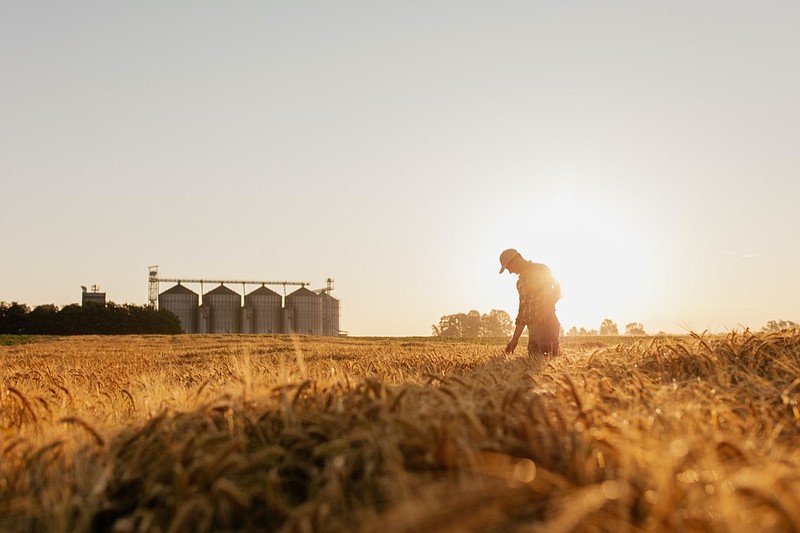The U.S. Department of Agriculture announced two pools of funding last year to support pilot programs to help farmers transition to more sustainable farming practices, create new markets, grow revenue sources and create a system to verify and report data to prove to consumers that crops are produced sustainably.
The funding was part of the Biden administration's Climate Smart Agriculture Initiative.
USA Rice received $80 million for its Rice Stewardship Partnership for Climate-Smart Commodities project; $62.5 million will go directly to farmers to help them implement conservation practices.
This portion of the funding will be allocated by rice acreage across six U.S. states, said USA Rice Grower Relations Director Josh Hankins.
Hankins said $31 million will be allocated to Arkansas farmers.
"This will be a competitive program, so during this process, we will be deciding our screening and ranking criteria," Hankins said.
"Most of the practices that will be implemented will start in calendar year 2024."
Arkansas was one of four state partners to receive $80 million in total "Climate Smart" funding via the Rural Investment to Protect our Environment Program (RIPE) for conservation pilot programs last year.
The RIPE100 three-year conservation program will pay producers $100 per acre or animal unit for stewardship practices such as carbon sequestration, greenhouse gas emission reduction, improved soil health, water quality and conservation.
"Our target, or goals for the state, are roughly 160 acres per producer or farmer," said Chris Colclasure, director of the Natural Resources Division of the Arkansas Department of Agriculture.
"We hope to reach somewhere between 800 and 1,000 producers in the state, we've got about 20 NRCS practices that we're looking to implement statewide, we're not just a row crop program, so we've got about 70,000 acres of row crops, roughly about 30,000 in pasture/range land and then about 22,000 animal units, so we're going to be fairly broad in our targeting of producers across the state."
"We hope to implement this program in about six counties, we may go to seven," Colclasure continued.
Another Arkansas "Climate Smart" pilot project called the Southeast Arkansas Agricultural Cooperative and Multicultural Education Initiative received $4.9 million and will be administered by Whitaker Grain.
The program will work with 11 rice producers, eight of whom are historically underserved in southeast Arkansas, said Jessica Whitaker Allen with Whitaker Grain.
The majority of project funding will go toward creating and establishing an agricultural apprenticeship program at a minority-serving institution, specifically the University of Arkansas at Monticello College of Technology in McGehee.
The program will also provide funding to help historically underserved producers implement sustainable farming practices.
"Lastly, the private sector lacks the third-party verified climate smart certificate that would reward these producers for implementing these climate smart practices in their rice production," Whitaker said.
The project will create a platform to identify and reward producers for implementing sustainable farming practices and delivering them to markets, Whitaker said.
Stuttgart-based Riceland Foods, Inc. will be a major partner with the $20 million Growing Value for Producers pilot project for rice and beef in Arkansas, Missouri and certain tribal communities.
Riceland Foods will focus on rice on their side of the project, Director of Sustainability Adam Shea said.
Riceland Foods will work with Arva Intelligence to track and quantify data related to sustainability practices, allocating $25 an acre to farmers for implementing sustainability practices across 30,000 acres each year -- with 10,000 of those acres set aside for historically underserved farmers -- over course of the four-year program, Shea said.
'The goal is to create a certificate that can be taken to market," Shea said.
"We are hopeful the payment is an incentive on the front end for people to implement the practices necessary, and moves up to them being able to sell the credits that are generated."

